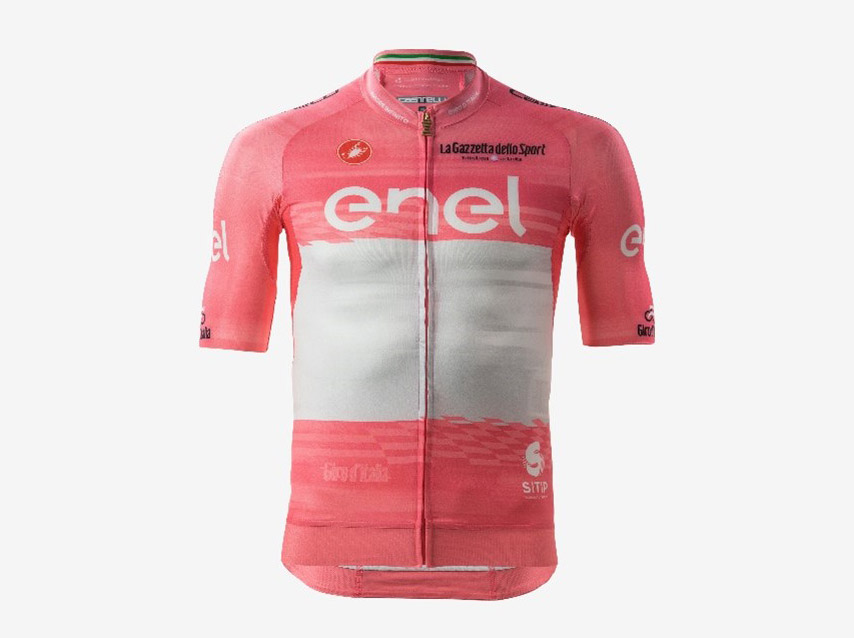Menu
This year Sitip is celebrating its 10th anniversary as official supplier of the Pink Jersey fabric, a venture that, over the years, has seen the company combine technical performance with environmental sustainability to kit out the stars of one of the world’s most loved and watched cycling events.
#sitip #giroditalia #pinkjersey #fabrics

It’s with the Giro d’Italia 2023, which will cover the length and breadth of the Bel Paese from 6th to 28th May, that Sitip will celebrate its 10th anniversary as the official supplier of the Pink Jersey fabric. A long-standing partnership between this company based in Cene, in the province of Bergamo, an area with a long textile manufacturing tradition, and a historic race of great prestige that, once a year, delights and thrills thousands of enthusiasts, cyclists and non-cyclists from all over the world.
This partnership has been kitting out all the great champions since 2014, providing the leading lights of the cycling world with clothing capable of meeting the highest technical requirements. Over time, the world’s most famous pink jersey hasn’t just changed in terms of its design, so as to remain in-step with current trends, but also in terms of the fabric it’s made with, in order to ensure it performs to the highest possible technical standards. Since 2020, the relentless quest to deliver a fabric that performs as well as the cyclist who wears it has been fused with Sitip’s commitment to employ a manufacturing process with a low environmental impact. Indeed, the fabrics that have been used to make the jerseys for the last three editions have come from post-consumer recycled yarns. And Sitip’s journey along this path will continue unabated in 2023, delivering a winning combination of performance and sustainability.


The race’s four classification jerseys are made by Castelli: for the General Classification (Pink Jersey), the Points Classification (purple), the King of the Mountains (blue) and the Young Rider Classification (white).
Three fabrics from Sitip’s NATIVE Sustainable Textiles line were chosen to produce the 2023 Pink Jersey, as well as the other three classification jerseys. The fabrics in this line are made from recycled yarns and using chemicals with a low environmental impact, thus enabling the consumption of natural resources to be kept to a minimum; they are also bluesign, OEKO-TEX and GRS certified.
The selected fabrics are Native Pirata, Native-Game Light and Native-Leader: all circular, fine gauge and made from post-consumer recycled yarns, i.e., made using materials derived from plastic waste that’s been recovered from the environment, primarily bottles. These fabrics, made from recycled polyester and elastane, are specifically designed for activewear pieces, especially cycling jerseys.

Bi-stretch and printable, they are pleasant to the touch and super-comfortable on the skin thanks to the MICROSENSE Soft Performance technology. Native-Leader also features the DRY Enduring Freshness technology, enabling the fabric to dry very quickly by facilitating the expansion and external dispersion of any moisture, leaving the body feeling pleasantly fresh.
The different fabrics have been positioned on the jersey according to the body mapping principle, whereby a fabric is selected for a specific part of the body to meet the needs of the function it performs. The Native Pirata fabric was used for the neck area, sleeves and the front, where extra protection is required; Native-Game Light, since it’s a particularly light fabric, was used for the back of the jersey to enable maximum breathability. Finally, the Native-Leader fabric was chosen for the jersey’s sides.
Sitip’s fabrics were also chosen for their ability to guarantee excellent aerodynamic performance, absolutely ideal for a jersey dedicated to the superstars of the cycling world. Last, but by no means least, these are highly sustainable fabrics produced using materials derived from plastic waste recovered from the environment.
Share
Sitip S.p.A.
Via Vall’Alta, 13
24020 – Cene (BG) Italy
Tel. +39 035 736511
Fax +39 035 719003
E-mail: info@sitip.it
Headquarters
Via Vall’Alta, 13
24020 – Cene (BG) – Italy
Production Plant
Via Caduti, 32
24020 – Cene (BG) – Italy
Bergamo Company Registration
Fiscal code and VAT number IT002285301
REA number 105522
Share Capital € 12,000,000, fully paid up
Contact Us
Before entering your personal data, please read our privacy policy and give your consent to the processing of your data.
Follow us
© SITIP S.p.A. | Privacy & Social Media Policy | Cookie Policy | Whistleblowing |